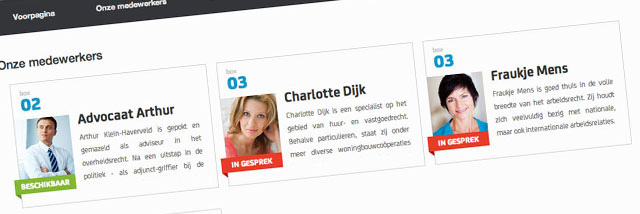What Does the Do-Not-Call Register Mean for Businesses?

If your business engages in telemarketing, such as cold calling, you need to be aware of the Do-Not-Call Register. In this article, we explain what this register is, how it works, and how it not only imposes obligations but also provides benefits for your organization.
What is the Do-Not-Call Register?
The Do-Not-Call Register is a legal system where consumers can register their landline and mobile phone numbers. Once a number is listed in the register, companies are prohibited from calling these consumers unsolicited for commercial or charitable purposes. This prevents consumers from being bothered by unwanted calls from unknown numbers.
Businesses must always check their call lists against the register before starting telemarketing calls. This prevents unwanted calls and fines that the Authority for Consumers & Markets (ACM) can impose for violations. The register has been active since July 1, 2009, and provides consumers with an easy way to block unwanted sales calls.
Why Does the Do-Not-Call Register Exist?
The register was established in 2009 to protect consumers from unwanted calls. It gives consumers the right to object, allowing them to explicitly indicate that they do not wish to be called. The goal is to give consumers more control over who contacts them while allowing businesses to continue using telemarketing within clear rules.
There are exceptions:
- You may call your own customers (current or former) unless they have explicitly indicated otherwise.
- Consumers who have given explicit consent may still be contacted.
Why is the Register Useful for Businesses?
At first glance, the register may seem like an obstacle for businesses. However, it also offers benefits:
- Higher Efficiency: By avoiding calls to consumers who are not interested, your staff saves time and increases conversion rates.
- Building Trust: When a consumer indicates during a call that they no longer wish to be contacted, you can easily respect this. You must end the current call and refrain from contacting them again. The result: trust in your brand and goodwill, which increases your chances of future sales.
- Avoiding Fines: By adhering to the rules of the Do-Not-Call Register, you avoid fines from the ACM. This ensures your business remains compliant with the law.
How Can Belfabriek Help?
Have you ever encountered a lead who previously gave consent but now wants to register in the Do-Not-Call Register? As a Belfabriek customer, we make this process simple for you, so you can quickly move on to your next call. With the press of a button, you can connect the lead to our voice response system, which automatically handles their registration in the Do-Not-Call Register. Want to learn more about this feature? Contact us for details.
Conclusion
The Do-Not-Call Register is designed to protect consumers from unwanted calls, but it also offers businesses benefits such as more efficient calls and increased trust. By complying with the rules, you remain compliant and improve your relationship with customers. Belfabriek makes it easy to comply with the regulations without extra effort.
Want to learn more about how we can support your telemarketing activities? Contact our experts and discover how simple compliant operations can be!
Frequently Asked Questions
A quick way to explore how everything works and what to expect.
You violate the rules and risk a fine from the Authority for Consumers & Markets (ACM). Always ensure your call lists are checked.
Yes, as long as they have not exercised their right to object and have not explicitly indicated that they do not wish to be called.
Consumers can indicate during a call that they no longer wish to be contacted. As a business, you must respect this immediately.
Only if they are not listed in the Do-Not-Call Register or have given explicit consent.
You can upload your call list to the Do-Not-Call Register for verification. Contact Belfabriek for easy integration with our system.
Yes, the ACM can investigate and impose fines if you fail to comply with the Do-Not-Call Register rules.

 Netherlands
Netherlands Belgium
Belgium Denmark
Denmark Germany
Germany France
France Switzerland
Switzerland Austria
Austria UK
UK Spain
Spain Italy
Italy


